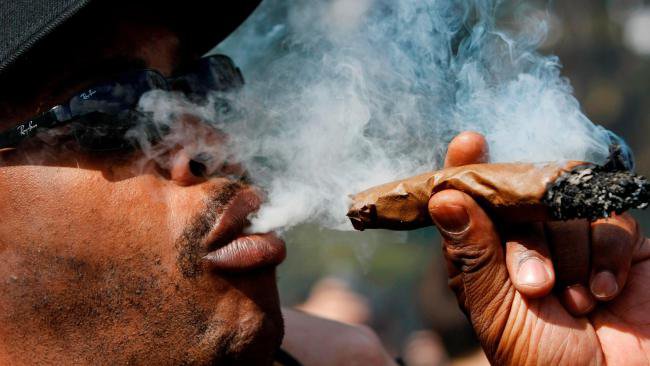NEW YORK, United States (AP) — New York’s governor signed a bill Monday that softens penalties for possessing small amounts of marijuana and allows for the expungement of some past offenses.
The law changes an unlawful possession of marijuana statute into a violation that’s similar to a traffic ticket, instead of a criminal charge.
Under the new law, the maximum penalty is $50 for possessing less than one ounce of ganja and a maximum of $200 for between one and two ounces.
The law also requires that records tied to low-level marijuana cases be automatically sealed and creates a process for expungement. It will take effect in 30 days.
“Communities of colour have been disproportionately impacted by laws governing marijuana for far too long, and today we are ending this injustice once and for all,” Governor Andrew Cuomo said in a statement.
Advocates for legal marijuana acknowledge the law is a step forward but also say it falls short of addressing a web of negative consequences that come with keeping marijuana illegal.
“Police have historically found a way to work around the decriminalisation of marijuana,” said Erin George, of Citizen Action of New York.
People can still face probation violations and immigration consequences under the decriminalisation bill, George said.
Emma Goodman, a staff attorney at The Legal Aid Society, noted that the group’s clients still risk being separated from their family by a child protective agency for basic marijuana possession.
“All of the collateral consequences of marijuana criminalisation that harm communities of colour will continue to exist,” she said.
Melissa Moore, New York state deputy director for the Drug Policy Alliance, said the law will continue to allow authorities to target people of colour and their communities for marijuana enforcement.
At least 24,400 people will no longer have a criminal record due to the bill, according to New York’s Division of Criminal Justice Services.
The law will prompt the sealing of more than 200,000 convictions for low-level marijuana offenses, according to the agency.
From 1978 through last year, about 917,000 arrests were made under an old criminal penalty for possession, state data shows. Last year, about 13,500 arrests were made under the criminal statute.
State lawmakers considered legalising marijuana for recreational use this year, but that legislation stalled after state leaders failed to reach an agreement on key details in the final days of the legislative session.

